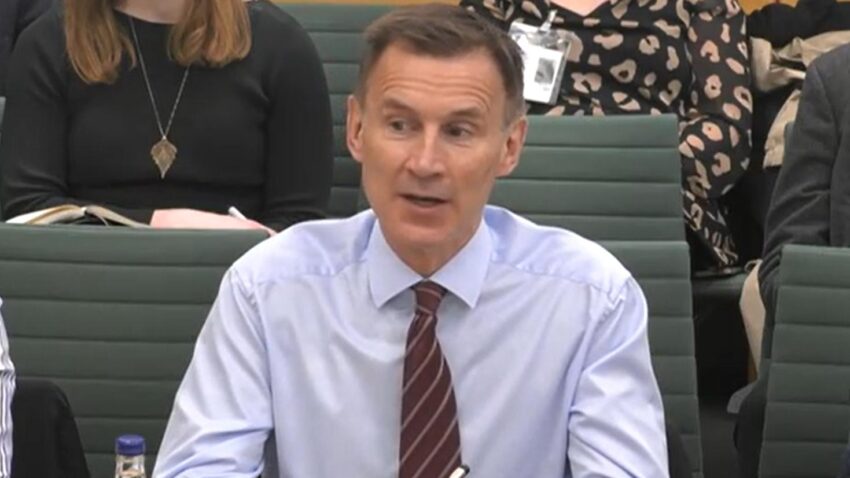In his budget statement today, Chancellor Jeremy Hunt confirmed that inflation is forecast to decrease significantly, dropping below the target rate of 2 per cent in the coming months.
Revised forecasts from the independent fiscal watchdog, the Office for Budget Responsibility (OBR), suggest that the economy will grow slightly faster than previously expected.
The OBR has raised its GDP growth forecast for 2024 to 0.8 per cent from 0.7 per cent and predicts a growth rate of 1.9 per cent next year, higher than the previous projection of 1.4 per cent. These improved near-term projections indicate that the economy is on track to emerge from the recession it entered in the second half of last year. GDP growth is forecasted to accelerate to 2.2 per cent in 2026, followed by 1.8 per cent in 2027 and 1.7 per cent in 2028.
Inflation, currently at 4 per cent, is expected to fall below the 2 per cent target “in just a few months’ time, nearly a whole year earlier than forecast in the autumn statement,” according to the chancellor. The OBR’s assessment shows that the government has met its fiscal rule of reducing debt as a share of GDP over five years by a narrow margin of £8.9 billion.
However, underlying debt, excluding Bank of England debt, is projected to remain relatively high, reaching 91.7 per cent of GDP in 2024-25 and continuing to rise in subsequent years before a slight decline in 2028-29.
The economy’s brief recession in the second half of last year, though short-lived and shallow, poses challenges for policymakers ahead of the expected general election in the autumn. With limited fiscal headroom due to below-trend GDP growth and increased interest rates, the chancellor faces constraints in public spending and tax cuts while adhering to fiscal rules.
Nevertheless, hopes are pinned on gradual economic recovery fueled by falling inflation, anticipated interest rate cuts by the Bank of England, and expected high wage growth exceeding inflation. These factors are anticipated to bolster household spending and contribute to overall economic growth as the year progresses.


